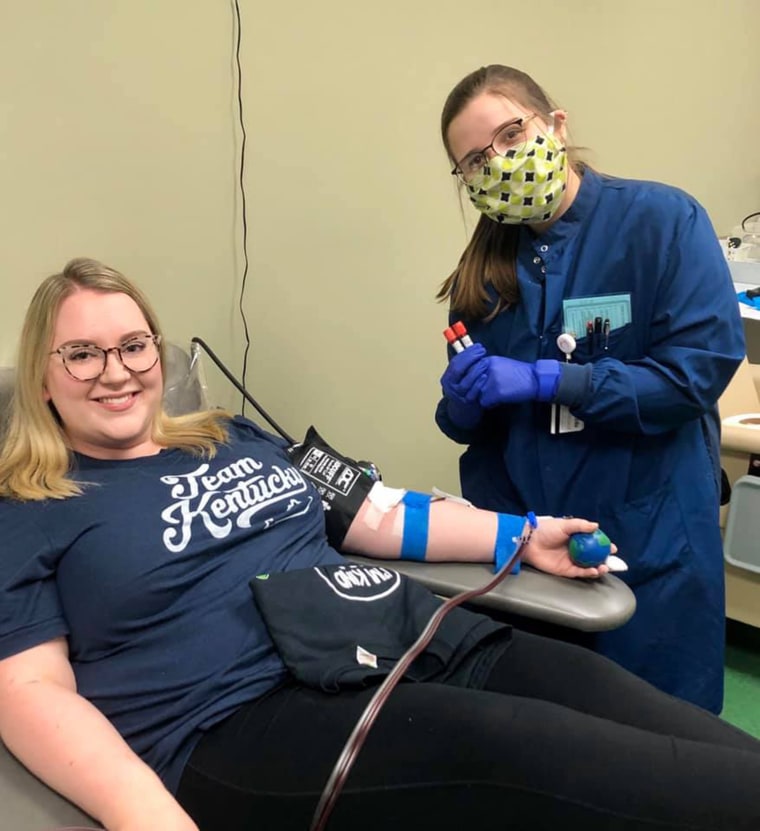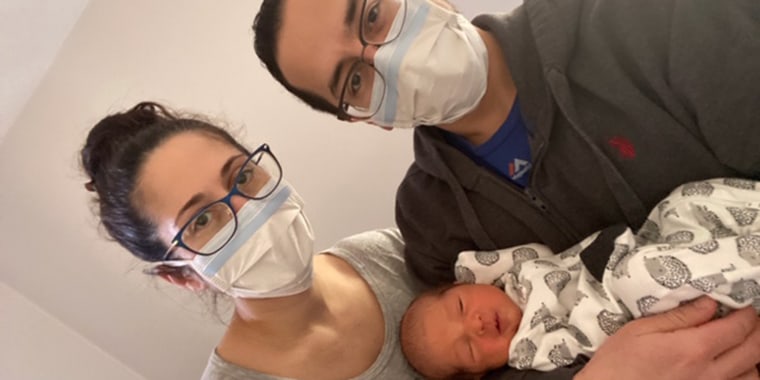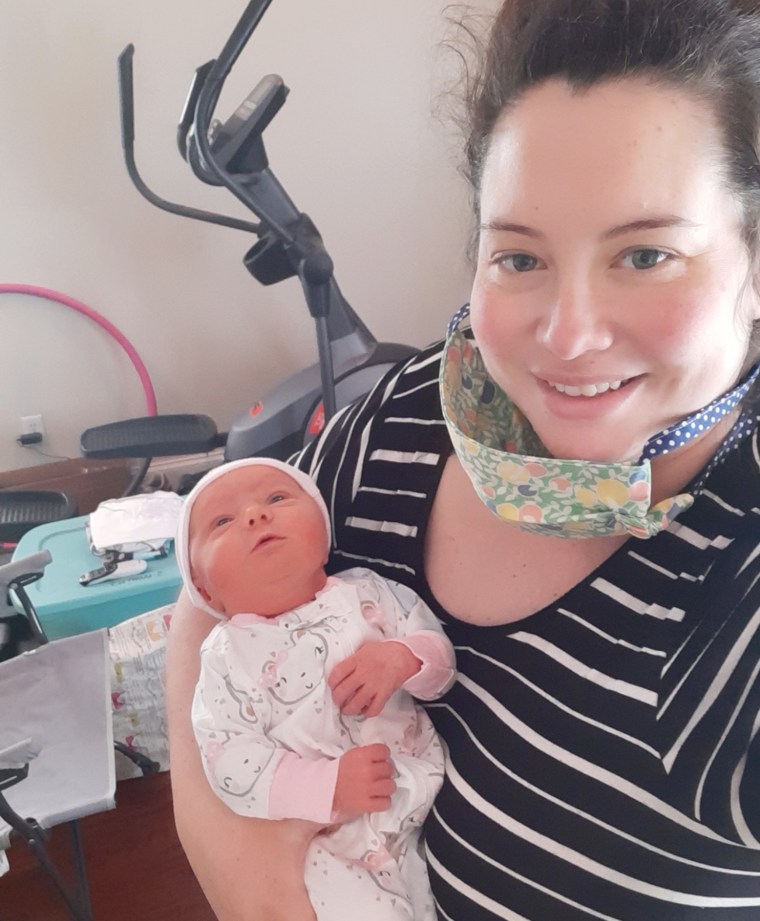When Anna Grace Downs was in the intensive care unit being treated for COVID-19 the nurses, nursing assistants and technicians offered comfort and support when no one could visit her. Even though friends and family couldn’t physically be there, they found other ways to comfort her while she was in the hospital and afterward.
“My own personal world was rocked, as my dad would say,” the 26-year-old medical student in Lexington, Kentucky, told TODAY. “When you’re that sick, it’s really hard to even process what is going on. Since I’ve been home that has given me time to process what happened and how quickly it happened and everything.”

Even a short text could boost her mood.
“So many people have reached out and have made my recovery so much easier,” she told TODAY via Facebook Messenger.
Downs and others who have recovered from coronavirus share things that loved ones did for them that helped them during their illnesses.
Download the TODAY app for the latest coverage on the coronavirus outbreak.
1. Meal and grocery delivery
Making meals and eating is often the last thing on the minds of people recovering from COVID-19. Yet, they still need food.
“When I was in the hospital, I wasn’t thinking about that because my meals were coming to me,” Danielle Sol, 35 of Long Island, told TODAY, who along with her husband had coronavirus. “Once I got home that first night my friend Erica said ‘Oh I ordered food for you. It will be there in 30 minutes.'”
And, she had just delivered a baby so meals were a welcome relief.
“I cannot tell you how amazing that was that I didn’t have to think about how are we going to eat,” she said.

Downs agreed. People dropped off food to her parents when she was in the hospital and that continued when she returned. But she especially appreciated the meals her mom prepared as she recovered at home.
“When I was still in isolation, my mom would cook and arrange food on a tray for me and my dad would bring it up to me, and that made me feel special and cared for while I was stuck in my room,” she said.
Mallory Pease, who like Sol had coronavirus and gave birth, said that “meals in labeled containers (or containers you can throw away)” and grocery drop offs made her recovery easier.
2. Calls, video chats, texts, window visits
Even a text “hello” goes a long way.
“A lot of people were hesitant to reach out to me because they didn’t want to bother me, but even if I couldn’t respond to texts or talk for long, it meant a lot to me,” Downs said.
At first, Sol didn’t want people to say too many nice things because it would cause her to burst into tears. Once she felt less emotional, the kind words helped her as she recovered.
“Hearing them tell me that they were proud of me … it really makes you think, 'Yeah, I can do this,'” Sol said.

People visited Peace and her daughter Alivia and stood outside the window to see them. Just a few minutes of face-to-face time invigorated her.
“The window visits helped a lot just to see people in real life and not on a screen. It was just a relief to be near people you love and see their faces. It is exciting to see each other,” she said via text.
3. TV and movie suggestions
It might sound simple but recovering from coronavirus requires loads of rest and a lot of alone time. Having good TV and movie recommendations helps isolated, convalescing people pass the time.
“It was very lonely,” Pease told TODAY. “I would just wake up, eat dinner and go to bed. I had zero energy."
4. Thoughtful gifts
When Sol came home with her son, Jonah, she worried about him gaining weight. Most of his doctor’s appointments were virtual so she wasn’t sure if he was growing as needed. So a friend dropped off a baby scale and that eased her fears. People delivered clothes and that also helped. Downs received flowers that brightened her mood.
“People would really just text my parents and say, ‘I left something on your front porch,’ which was so nice,” Downs said. “We received many cards, too.”
5. Prayers
When Downs’ family worried about her, prayers helped them.
“My parents’ church friends came by to pray with them when I was at my sickest,” she explained.
After delivering baby Jonah alone, Sol thought of others with COVID-19 and that helped her cope.
“I’m praying for everybody especially those mothers who are bringing a child into this world. I know they are going to get through this,” she said.
